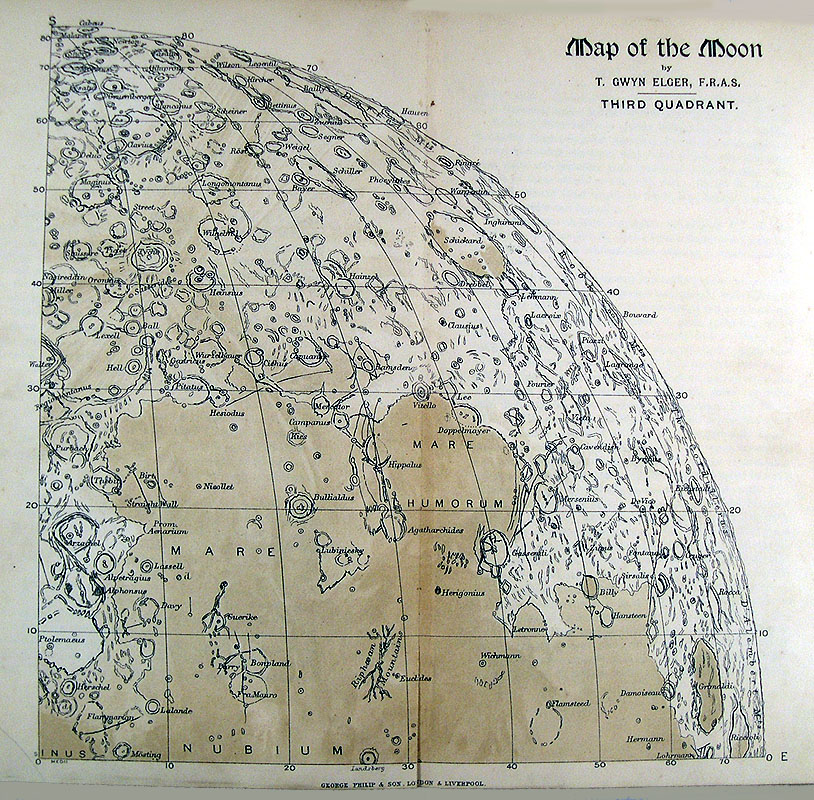March 29, 2015
A Quadrant of Elger
Originally published March 28, 2004
Image Credit: C.A. Wood Collection |
|
A Quadrant of Elger Maps are absolutely necessary for studying the Moon. To observe a specific feature you have to be able to find it. The great books Epic Moon (Sheehan and Dobbins) and Naming and Mapping the Moon (Whitaker) describe the history of lunar maps and the reasons for their construction, but as a student of the Moon - at the telescope or armchair - your basic need is usefulness: Can a map help you quickly find the object of your interest? Probably for most early maps the answer is no, and some more recent ones are so cluttered that they are of little practical value. Previously, I recommended Goodacre's clean simple maps, and now I feature the classic quadrant maps by Thomas Gwyn Elger, who was appointed the first director of the British Astronomical Association Lunar Section in 1890. Elger's 1895 book The Moon includes four quadrant maps, each about 24 x 24 cm, with a greenish-brown pattern for maria. Although they lack lettered crater designations, the schematic crater outlines of these quadrant maps make them easy to use - printing the four maps on stiff paper, even today, 109 years after their introduction, would provide a useful guide for use at the telescope. Related Links: Yesterday's LPOD: LTO Tomorrow's LPOD: Hoover Dam (and Surroundings) |
|
Author & Editor: |
COMMENTS?
Register, Log in, and join in the comments.




